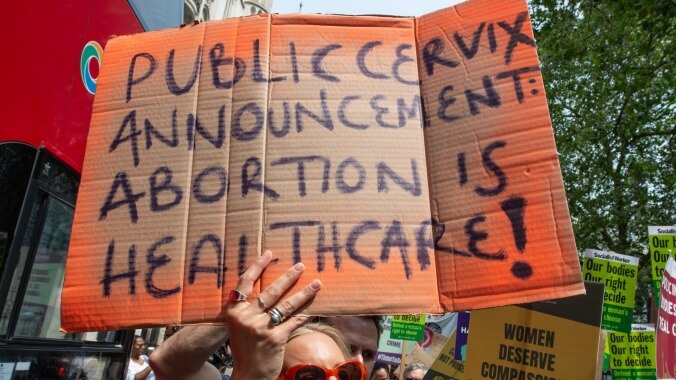Washington Dems Promised to Expand Abortion Access—But Just Proposed an $8.5 Million Cut
After Roe was overturned, the state launched the Abortion Access Project to help keep reproductive health clinics open. This week, Senate Democrats submitted a budget that would slash funding by 55%.
Photo: Getty Images AbortionLatestPolitics
During Washington’s 2024 gubernatorial race, Republican Dave Reichert was polling surprisingly close to Gov. Bob Ferguson (D) for the deep-blue state. In response, Washington Democrats called out Reichert for his claims that he wouldn’t legislate on or further restrict abortion, pointing to his record of supporting a national 20-week abortion ban and his past votes to restrict access to birth control.
Ferguson ultimately won. But now, in a striking reversal of his and his party’s campaign-trail promises, it’s Democratic lawmakers who are poised to cut funding for abortion services—cuts that, according to the state’s Planned Parenthood chapter, could force clinics in the state to close their doors.
Earlier this week, the Democratic-controlled state legislature rolled out a budget that cut state funding for the Abortion Access Project by 55%, or $8.5 million. Local news station KOMO News reports that the budget is expected to pass the legislature with strong Democratic support.
Since Dobbs v. Jackson Women’s Health three years ago, more and more abortion seekers have been forced to travel out of state for care. Even in states like Washington, where abortion has remained legal, a rise in out-of-state patients has increased the strain on both abortion providers and abortion funds trying to help people pay for care. One of the largest health care networks in the state saw a 50% increase in out-of-state abortion patients in the year after Roe was overturned, according to a study from the University of Washington published in May 2024.
-

-

-

-

-

-

-

-

-

-

-

-

-

-

-

-

-

-

-

-

-

-

-

-

-

-

-

-

-

-

-

-

-

-

-

-

-

-

-

-








































